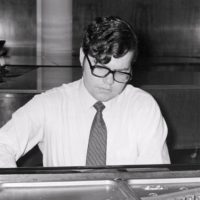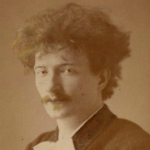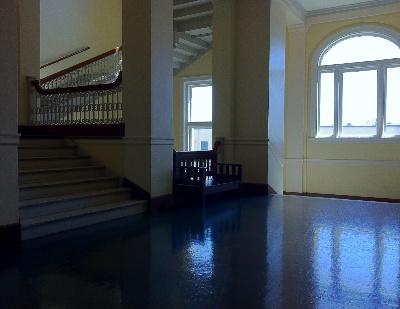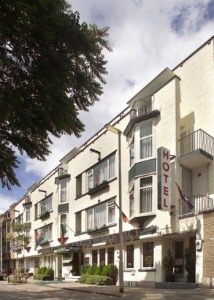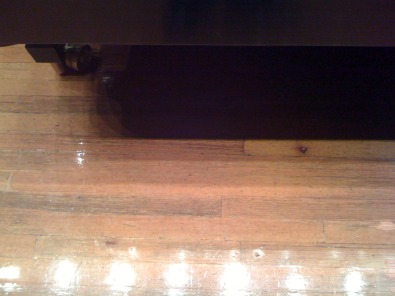My introduction of Emanuel Ax in May in Boston, as he received an honorary doctorate from New England Conservatory. "For a long time the listeners of the world have admired -- for a long time, the listeners in the world have loved Emanuel Ax. Hearing him play Century Rolls, the piano concerto written in 1997 by John Adams for him, first played by Mr. Ax and the Cleveland Orchestra, I was thrilled. As I was thrilled hearing him play Brahms’ … [Read more...]
Photographs of Paderewski
Every week there are newly-offered Paderewski items for sale on eBay. His long career yielded thousands and thousands of pieces of ephemera, programs, Paderewski postcards, Paderewski soap, tobacco cards, coins, candles, postage stamps, newspaper photos, piano rolls, sound recordings. For a long time, I wanted to acquire an old photograph of Ignaz Jan Paderewski. (Is it because I know Horowitz kept a Paderewski photo near his piano?) … [Read more...]
Up and Down
I turn on the radio in the car (where I usually listen to hiphop music) and hear a recording of Haydn's F-Minor Variations. I don't change the station. Within seconds, I'm thinking about the bright, separate envelope of every treble note in the recording. Lovely, but not really legato. Must be a German Steinway, I think. Whatever else pianists may be doing, in order to play piano music -- piano keys move vertically, down and then up again in … [Read more...]
Sic transit pianisti
I return to Rotterdam, and it's as if no time has passed. Four years ago, I left very early in the morning, down a street with wood planks instead of a sidewalk. The construction is long finished, but I return to the thrill of that morning. It was October then too. I did a 2-day seminar in Rotterdam, at Codarts. Following that, something slightly crazy was on my schedule. I'd agreed to play, with several other pianists (Robert Levin, … [Read more...]
To the left
There was a nail in the old Carnegie Hall stage floor that marked the precise spot where the leg of Vladimir Horowitz's piano was to be positioned. Neurosis? Or careful attention to sonic detail? I was not very satisfied with the way I was playing -- near the end of a three-hour rehearsal at Wigmore Hall in London. My friend David Rick suggested that the piano be moved back, much closer to the rear wall of the Wigmore stage. The move was made … [Read more...]
Change of venue
In the eighteenth century, there were no concert halls. In 1750, no one would have asked: "Who will write the next great enduring symphony?" Venues develop in response to art, or art and venues develop together in some not entirely explainable relationship (like instruments and music). Halls are instruments too. Can anyone doubt that the 2,000-plus-seat Musikverein/Carnegie/Concertgebouw model is a period piece? It's a manifestation of a … [Read more...]
Mr. Brendel, thank you
My introduction of Alfred Brendel last night in Boston: In classical music, there are those who believe that thinking about music can compromise feeling -- compromise our emotional response to music. Alfred Brendel's example vividly shows us that such notions are foolish. Mr. Brendel scrutinizes the canonic texts of the piano repertory. He examines the behaviors of piano playing and musical life, and he's shown that deep reflection can yield … [Read more...]
Chiff
The onset, the leading edge, of a note played on the piano is sudden. All the intensity of the tone comes right at the start, and then is followed by rapid decay. Close-up in a small room or in some recordings, we may be very aware of this edge. The slightly percussive beginning of a tone played on the organ is called "chiff." It can come from the physical opening of the valve which moves aside so air can flow through a pipe and make sound, or … [Read more...]

